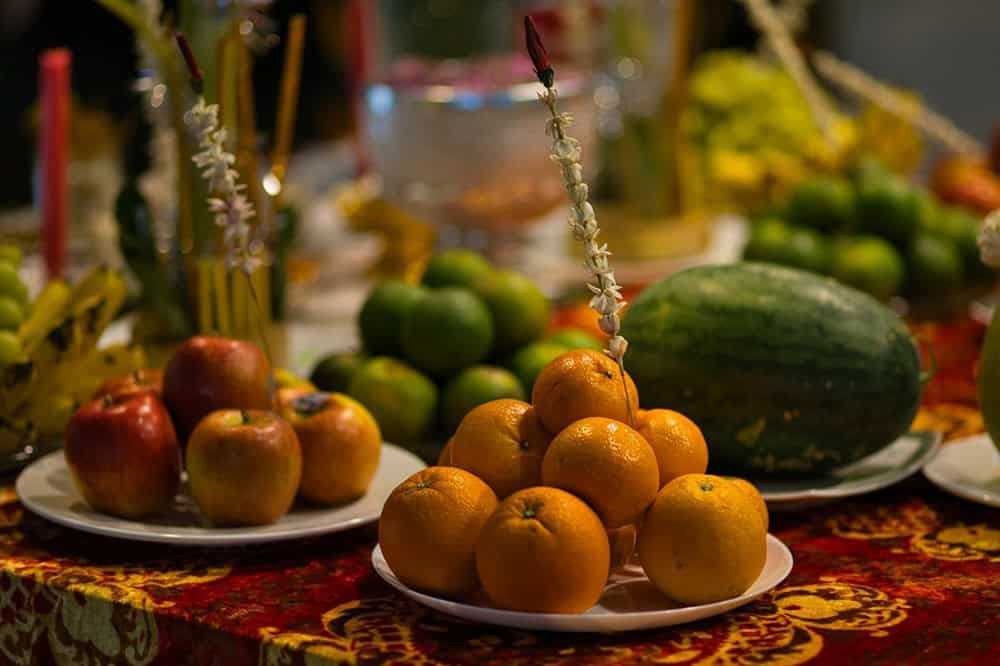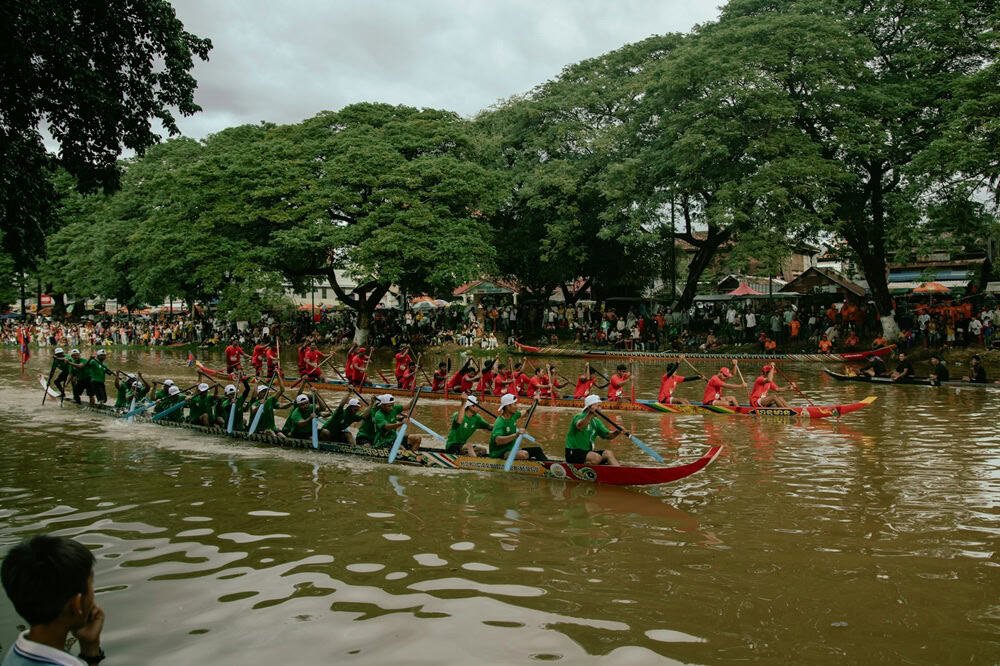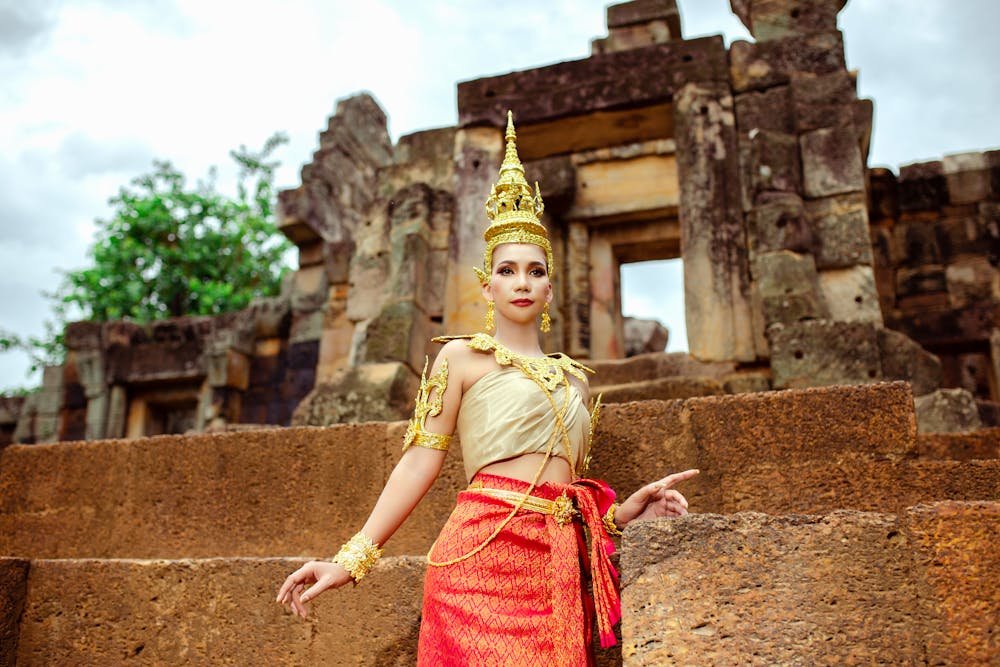So, if you’re reading this post, we hope that you’re thinking about visiting Cambodia—or maybe you’re just curious about what makes this Southeast Asian spot quite unique and full of surprises.
Either way, you’ve come to the right place.
One of the absolute best ways to really feel the heartbeat of Cambodia is through its festivals.
That is because they’re not just dates on a calendar, as in they’re living, breathing celebrations of history, faith, community, and joy. And honestly, once you experience one, you’ll understand why locals light up when they talk about them.
Trust us, Cambodian festivals are a beautiful mix of ancient traditions, Buddhist rituals, and pure, unfiltered fun.
Whereas whether it’s splashing water on strangers during the New Year or watching hundreds of boats race under the moonlight, there’s something deeply fascinating and heartwarming about how Cambodians come together to celebrate.
Plus, they’re super welcoming to visitors—so don’t be shy!
Now, with all that in mind, grab your favourite drink (iced coffee, anyone?), sit back, and let’s take a relaxed guide through the most unforgettable festivals in Cambodia.
Why Festivals in Cambodia Are So Special?
To be honest, what makes Cambodian festivals so special isn’t just the music, food, or colourful outfits—it’s the spirit behind them.
Whereas these celebrations are deeply based in Buddhism, agricultural cycles, and royal traditions that go back centuries.
Moreover, they remind us of the resilience and warmth of the Khmer people, who’ve held onto their culture through thick and thin.
Furthermore, Cambodian festivals aren’t just for show. They’re moments when families reunite, villages get busy with activity, and even strangers greet each other like old friends.
To be honest, there’s a sense of collective joy that’s hard to find elsewhere.
Therefore, for that reason, attending a festival here feels less like being a tourist and more like getting invites into someone’s home.
Conversely, while some countries treat festivals as photo time moments or commercial events, in Cambodia, they remain deeply personal and community-centred.
Accordingly, every gesture carries a meaning, whether it’s offering rice to ancestors or blessing a newborn ox.
Major Festivals in Cambodia
Khmer New Year (Chaul Chnam Thmey)


Let’s start with the big one—Khmer New Year!
This is obviously the most joyful, energetic, and widely celebrated festival in the country.
It usually happens around April 14th and lasts for two days (though honestly, the party vibes can go longer).
Now, you might get a question as to why April?
Well, April marks the end of the harvest season, as per their saying and the beginning of the new solar year, which is something interesting.
Speaking of which, during Khmer New Year, cities quiet down as people return to their hometowns.
But don’t worry—you won’t be bored.
That is because the streets are full of music, traditional games like chol chhoung (a gentle throwing game with scarves), and kids playfully splashing water on elders as a sign of cleansing and respect.
Moreover, homes are neat and tidy top to bottom, altars are with flowers and incense, and everyone wears their best clothes—often in bright and happy colours.
So, if you think about it, it’s like Christmas, Thanksgiving, and your birthday all in one spot. And if you’re lucky enough to be invited to a local family’s celebration, you’ll be treated to mountains of food, sweet sticky rice cakes, and many hilarious stories.
Tip: When entering a house, bring a small gift or some fruits as a thank-you, as it’s the polite thing to do.
Water Festival (Bon Om Touk)


Next on our list is the Water Festival, or Bon Om Touk.
This one is a total spectacle—and it happens every November, right after the rainy season ends.
Why is that? Well, that’s when the Tonlé Sap River reverses its flow, a natural wonder that’s been celebrated for centuries.
Anyway, the highlight is that you can see massive boat races on the Tonlé Sap and Mekong rivers, especially in Phnom Penh.
Trust us, we’re talking about hundreds of rowers in long, dragon-headed boats, paddling in perfect sync to the beat of drums.
Whereas the energy at that time is electric as the crowd lines the riverbanks, food stalls pop up everywhere, and at night, the sky lights up with fireworks.
Furthermore, the festival isn’t just about racing. It’s also a time to give thanks to the river for its purpose in human life.
As a matter of fact, locals believe the river’s reversal brings fertility to the land, so it’s deeply tied to agriculture and survival.
For that reason, it’s both a party and a prayer.
Note: If you go, be ready for the crowd count—but also for pure magic. That is because watching the illuminated boats glide under the full moon during the final night is absolutely unforgettable.
Pchum Ben Festival
Now, let’s change our interests a bit.
While most festivals are upbeat, Pchum Ben is more solemn—but just as meaningful.
Often known as “Ancestors’ Day,” it’s a 15-day Buddhist festival (with the most important day falling around late September) when Cambodians honour their deceased relatives.
Here’s how it works: People visit local temples to offer food, rice balls, and prayers to monks. As in they believe that during this time, the spirits of their ancestors—especially those who didn’t get proper funerals—return to the earthly realm. Therefore, by making offerings, they help to ease their loved ones’ suffering in the afterlife.
To be honest, it’s deeply moving to see that the entire family, from toddlers to grandparents, walks quietly to the temple at dawn by carrying baskets of food.
Note: Tourists are welcome to observe, but remember to dress neatly and keep your voice low. Also, this isn’t a time for photos or loud conversations as it’s a sacred moment of remembrance.
Royal Ploughing Ceremony (Preah Reach Pithi Chrot Preah Neangkol)
This one sounds fancy—and it kind of is!
That is because the Royal Ploughing Ceremony is an ancient royal ritual that marks the official start of the rice-growing season.
It usually happens in May, though the exact date changes each year based on astrological calculations.
Anyway, during the ceremony, the King (or his representative) ploughs a sacred field with two white oxen.
Then, the oxen are offered seven different kinds of food and drink.
In fact, whatever they choose is believed to predict the coming year’s harvest; for instance, if they go for corn, it means a bountiful crop, while skipping water may indicate a dry season ahead.
Furthermore, it’s not just about farming—it’s a symbol of the King’s role as a protector of the land and people.
Whereas the whole event is steeped in Hindu-Buddhist tradition and feels like going back in time.
For that reason, it’s a fascinating blend of spirituality, agriculture, and monarchy. And while it’s not as flashy as the Water Festival, it’s quietly powerful in its own way.
Visak Bochea Day
If you’re into spiritual moments, Visak Bochea (or Vesak) is one to mark on your calendar.
Celebrated on the full moon in May, it honours the birth, enlightenment, and death of Lord Buddha—all three on the same day!
On this day, temples across Cambodia glow with lanterns and candles.
Whereas locals gather to meditate, listen to sermons, and release caged birds as a symbol of liberation.
Plus, many people also abstain from meat and alcohol, and some even stay overnight at the temple.
Moreover, it’s a public holiday, so everyone gets a stress-free day.
In other words, during this time, streets are quieter, and there’s a gentle, reflective mood in the air.
That being said, even if you’re not Buddhist, it’s hard not to feel a sense of peace during Visak Bochea.
Meak Bochea Day
Similar in spirit but earlier in the year (usually February), Meak Bochea shows a gathering of 1,250 of the Buddha’s disciples.
They all showed up—without being invited—on the same full moon night to perform the rituals.
Like Visak Bochea, it’s a day of temple visits, candlelit processions, and moral reflection.
Whereas people walk around the temple three times holding candles, incense, and lotus flowers—a ritual called pradakshina.
Trust us, it’s simple, beautiful, and full of something unique.
Conversely, while it’s not as widely known among tourists, locals take it seriously.
Therefore, if you’re in Cambodia during this time, joining a temple ceremony is a lovely way to connect with the culture on a deeper level.
Angkor Festival
Last but not least—let’s talk about the Angkor Festival.
Held in Siem Reap (usually in December), this one’s all about celebrating Khmer arts, music, and heritage right in the shadow of Angkor Wat.
Unlike the religious festivals, this is more of a cultural type.
Whereas you’ll see traditional dance performances, shadow puppetry, silk weaving demos, and live music with ancient and modern styles.
Furthermore, the whole town gets involved during this time.
In fact, schools perform, monks bless the stages, and even the temples light up for special night tours.
For that reason, it’s a perfect festival for travellers as it’s accessible, educational, and incredibly perfect for capturing some images.
Plus, it’s a great chance to support local artists and learn about Cambodia’s creative soul beyond the temples.
So, yes, if you love culture but aren’t sure where to start, the Angkor Festival is a great place to begin.
Tips for Experiencing Cambodian Festivals
Alright, now that you’re excited (and you should be!), here are a few friendly tips to make your festival experience perfect and respectful.
First of all, dress neatly, especially at religious events.
Speaking of which, shoulders and knees should be covered when visiting temples or attending ceremonies like Pchum Ben or Visak Bochea.
Tip: A simple scarf or sarong can help you out.
Secondly, be patient with locals and delays.
That is because festivals mean packed streets, slower transport, and sometimes last-minute changes.
But hey, that’s part of the adventure, right?
Thirdly, ask before taking photos, especially of people or monks.
Trust us, a smile and a quick “Is it okay?” go a long way.
Moreover, during solemn festivals, keep your voice low and avoid loud laughter near prayer areas.
With that, don’t forget to try some Cambodian food!
The reason for that is, festival stalls serve some of the best street eats you’ll ever taste, from grilled bananas, sticky rice, num ansom (sweet rice cakes), and more.
And finally, learn a few Khmer phrases.
For instance, even just “Sous-dey!” (hello) or “Aw-kun!” (thank you) will make locals happy.
Anyway, always remember that Cambodians are incredibly kind, and showing effort to connect means everything.
For that reason, don’t stress about getting everything “right.” Just come with an open heart, and you’ll be welcomed with open arms.
Conclusion
So there you have it—the most soulful and downright fun festivals that Cambodia has.
From the splashy joy of Khmer New Year to the quiet vibe of Pchum Ben, each celebration tells a story about who the Khmer people are.
With that, whether you’re dancing under fireworks at the Water Festival or lighting a candle at Angkor Wat during Visak Bochea, you’re not just watching a festival—you’re becoming part of Cambodia’s living story.
And that is something you’ll carry with you long after you’ve left.
So if you get the chance, go.
Say yes. Dive in. Whereas Cambodia’s festivals aren’t just events—they’re invitations to connect, celebrate, and remember what really matters.
Contact Travelco to book Cambodia tour packages from Sri Lanka.
FAQs
Khmer New Year (Chaul Chnam Thmey) is the biggest and most widely celebrated festival in the country.
It’s held in November, usually around the full moon, right after the rainy season ends.
Yes! Most festivals welcome tourists, especially the Khmer New Year, the Water Festival, and the Angkor Festival. Meanwhile, just be respectful during religious events.
There are dozens! Cambodia has national, religious, royal, and local festivals throughout the year—but the ones listed here are the major ones worth planning around.
For general festivals, such as the Khmer New Year or the Water Festival, light and comfortable clothes are fine. On the other hand, for temple visits or religious ceremonies, wear something simple that covers your shoulders and knees.


Editorial Staff at Travelco are experts in Global Tourism.

